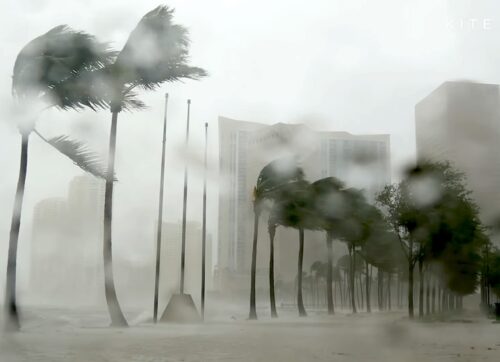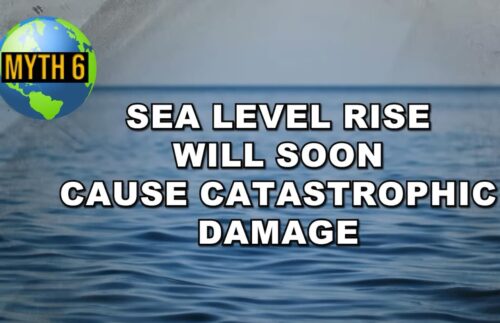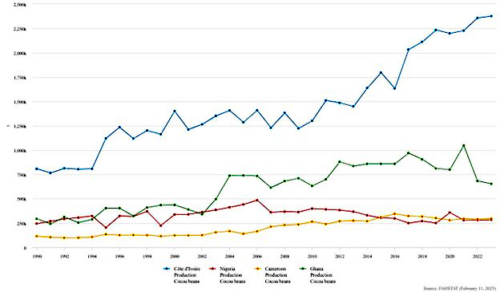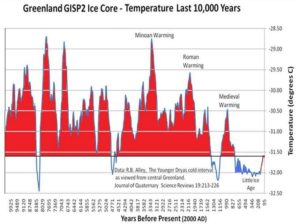by A. Stiles, Mar 7, 2025 in ClimateChangeDispatch
10 catastrophic climate forecasts that failed.
It’s been almost six years since the delinquent child activist Greta Thunberg promoted a so-called scientist’s warning that “climate change will wipe out all of humanity unless we stop using fossil fuels” by 2023. [emphasis, links added]
The scientist in question, Harvard University professor James Anderson, also predicted “there will be no floating ice remaining” in the Arctic Ocean by 2022 absent a “Marshall Plan-style endeavor in which all of the world takes extreme measures to to transition off of fossil fuels completely within the next five years.”
That didn’t happen, but climate activists are still warning that the Arctic could be ice-free at some point between 2035 and 2067.
Not surprisingly, there is a long history—dating back to the 1970s—of so-called climate scientists and government bureaucrats making catastrophic predictions about the environment that never materialized.
Here are 10 of the most egregious examples. Enjoy!
1) In 1970, S. Dillon Ripley, a wildlife conservationist who served as secretary of the Smithsonian Institute, warned that 75 percent to 80 percent of species would be extinct by 1995.Wrong.
2) In 1970, Kenneth Watt, an ecologist and professor at the University of California, Davis, warned that “there won’t be any more crude oil,” that “none of our land will be usable” for agriculture, and the world would be 11 degrees colder by the year 2000. False.
3) In 1970, biologist Paul Ehrlich at Stanford University warned that by the end of the decade up to 200 million people would die each year from starvation due to overpopulation, life expectancy would plummet to 42 years, and all ocean life would perish. Extremely false.
4) In 1970, Peter Gunter, a professor at North Texas State University, predicted that “world population will outrun food supplies” and “the entire world, with the exception of Western Europe, North America, and Australia, will be in famine” by the year 2000. Didn’t happen.
5) In 1971, Dr. S. I. Rasool, an atmospheric scientist at NASA, predicted the coming of a “new ice age” within 50 years. Incorrect.
6) In 1975, Ehrlich, the Stanford biologist, warned that 90 percent of tropical rainforests and 50 percent of species would disappear within 30 years. Erroneous.
7) In 1988, Hussein Shihab, environmental affairs director of the Maldives, warned that his island nation would be completely underwater within 30 years, which wouldn’t even matter because experts also predicted the Maldives would run out of drinking water by 1992. False.
8) In 2004, a Pentagon analysis warned of global anarchy due to climate change. Major European cities would be underwater by 2020, at which point Britain would suffer from a “Siberian” climate. Extremely false.
9) In 2008, Bob Woodruff of ABC News hosted a two-hour climate change special warning that New York City could be underwater by 2015, among other apocalyptic predictions. Didn’t happen.
10) In 2009, former vice president and climate activist Al Gore predicted the Arctic Ocean would have no ice by 2014, which is the same thing Greta Thunberg said would happen by 2022. Nope







